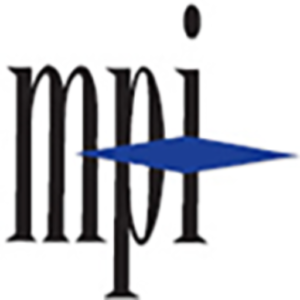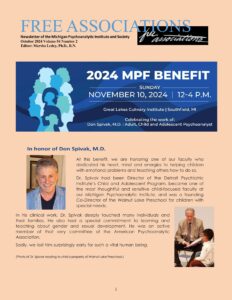Psychotherapy Training (ACAPP)
Adult and Child/Adolescent Advanced Psychoanalytic Psychotherapy
All ACAPP classes are currently held online.

Gail Vanlangen, Ph.D.
Co-Chair, Admissions Committee; Director, ACAPPgailvanlangen@gmail.com(734) 622-9885| When: | September to May Mondays 6:45 – 9:45 p.m. |
| Where: | Online |
| Application Deadline: | June 30th every year |
| Tuition: | $3500 + $200 MPS dues |
| ACAPP students are required to join the Michigan Psychoanalytic Society, dues $200/year. Includes access to PEP-Web, a comprehensive database of articles on psychoanalysis, readings and symposium registration. | |
Adult and Child/Adolescent Advanced Psychoanalytic Psychotherapy
ACAPP is a one- to three-year program, designed to improve therapists’ clinical skills and to demonstrate the usefulness of applying contemporary analytic thinking in a wide variety of situations. ACAPP welcomes social workers, psychologists (including interns), psychiatrists (including residents), psychiatric nurses, and other qualified professionals. This program may also be of interest to non-mental health professionals who wish to apply the psychodynamic perspective to their own field of work. Certificates are given to students completing at least two years. Distance learners can attend the program through video-conferencing.
Curriculum
The ACAPP curriculum integrates theory with technique to explore how people think, make choices, adapt to inner conflicts, and relate to others. Courses are taught through the lens of multiple psychoanalytic perspectives with an eye towards treatment implications and application. The first year is also called the Foundational Year, and psychotherapy students are learning alongside psychoanalytic candidates. The second year focuses on the application of psychoanalytic therapy to specific clinical issues such as ethics, dreams, trauma, termination, couples work and addictions. Throughout the program there are opportunities for students to present their own clinical process material. Graduation takes place at the end of the second year. Third year classes are offered sporadically and are open to all ACAPP graduates.
Child Topics addresses many different aspects of working with children and adolescents, including topics such as parent work, play therapy, developmental traumas, and gender development. This sequence is only offered in years with sufficient interest.
Clinical work and Consultation
Each clinician in the program is required to see at least one patient in psychoanalytic psychotherapy treatment and to have weekly consultation with an MPI faculty member or candidate to discuss patients being seen in psychoanalytic therapy. Times, locations and fees of consultations are arranged individually.
Treatment
It is strongly recommended that each program participant be involved in their own personal psychoanalytic psychotherapy or psychoanalysis concurrent with the program, in order to increase the sensitivity of the participant to the workings of unconscious forces and to enable them to engage most effectively in work with patients. Personal treatment increases immersion in the educational experience and provides a place to work on the many feelings inevitably stirred up when learning psychoanalytic psychotherapy.
Michigan Psychoanalytic Society (MPS)
Membership in MPS is required for all ACAPP students. This includes access to PEP-Web for course readings, free CME/CE credits for classes and all MPS events, and the registration fee for the Annual Symposium.
Licensure
Each clinician in this program must be licensed to practice psychotherapy in the state(s) in which they practice and must have professional liability insurance.

 Brochure of Educational Programs
Brochure of Educational Programs